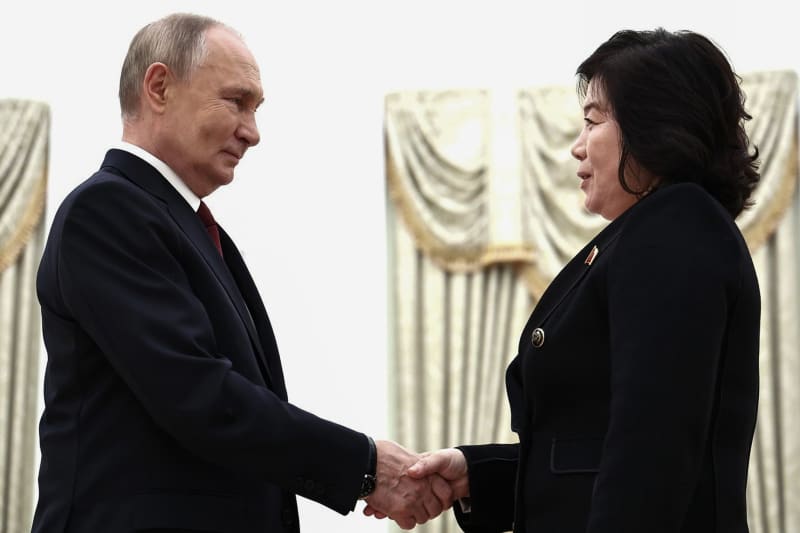Recent developments in the ongoing conflict between Ukraine and Russia have raised international alarms, particularly concerning the involvement of North Korean soldiers. Ukrainian President Volodymyr Zelensky reported that approximately 11,000 North Korean troops have arrived in the border area of Kursk, feeding concerns that they may soon be deployed against Ukraine. Zelensky, citing intelligence findings, expressed frustration over the slow response from Western allies to this escalation. While it’s uncertain whether these troops will engage directly in fighting within Ukrainian territory or assist in logistical roles behind the frontlines, the potential for their deployment marks a significant shift in the dynamics of the conflict.
Zelensky characterized the situation as critical, noting that Ukrainian forces have made progress in counteroffensives since August, successfully establishing a “protection zone” along the border with Russia. This has allowed Ukraine to capture significant territory, potentially diverting Russian military attention from the eastern front in Donetsk and Luhansk where losses have been substantial. The Ukrainian President highlighted that their military actions have not only helped reclaim areas but have also led to the capture of Russian soldiers for potential prisoner exchanges, bolstering morale in his country and contributing to the fight for liberation from Russian control.
Western nations have reacted with concern to the possibility of North Korean troops engaging on behalf of Russia, viewing it as a substantial escalation of the conflict. The prospect of foreign troops adding to the already high stakes of the war signals a new phase that could reshape military strategies and operations for both sides. This aligns with observations that the Ukrainian military is facing increasing fatality rates and material losses amid its operations, underscoring the urgency for support and strengthening of defenses as they contend with additional foreign intervention on the Russian side.
In a related diplomatic engagement, President Vladimir Putin met with North Korean Foreign Minister Choe Son Hui in the Kremlin, signaling a continued partnership between the two nations, particularly regarding military support. Choe’s visit included a reiteration of North Korea’s commitment to standing by Russia in its ongoing war effort against Ukraine. Recent diplomatic efforts between North Korea and Russia have reinforced their strategic partnership, particularly in military cooperation, as the Kremlin faces international sanctions and criticism due to its actions in Ukraine.
The geopolitical ties between North Korea and Russia have become increasingly significant against a backdrop of global tensions. Both nations, faced with isolation and sanctions—North Korea for its nuclear ambitions and Russia for its military campaign in Ukraine—have sought to bolster their relationship through various agreements, including mutual military support as highlighted in a treaty signed during Kim Jong Un’s visit to Russia. While specific details of the support and logistics remain ambiguous, the message of solidarity has been clear from both parties.
As the situation develops, the involvement of North Korean soldiers may alter the course of the conflict and provoke further responses from the international community, particularly Western allies of Ukraine. The prospect of increased military collaboration between Moscow and Pyongyang poses a challenge for Ukraine, which is already contending with a formidable adversary. The arrival of North Korean troops could lead to escalated hostilities and complicate peace efforts, thus requiring a recalibration of strategies for Ukraine and its allies as they navigate this new phase of the war. The intertwining interests and actions of these nations could shape the broader geopolitical landscape in the region and beyond.

